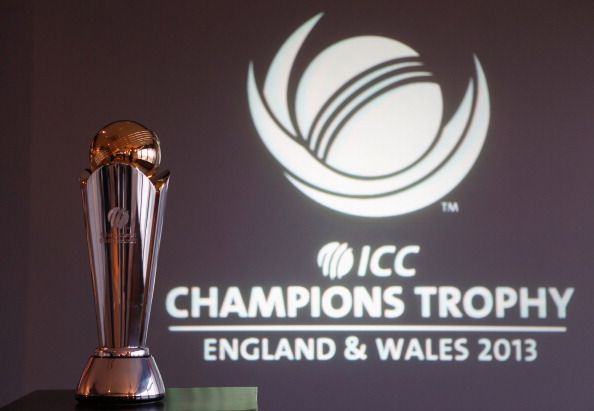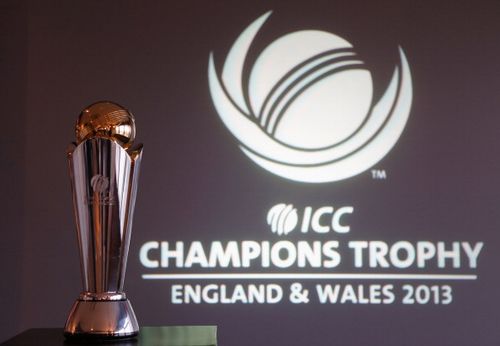
Why the ICC Champions Trophy still holds relevance

With the IPL fever finally over, it’s time to gear up for the Champions Trophy. The 50-over format of the game has been lagging behind in generating interest as compared to the shortest format. But with the introduction of new rules, thanks to ICC’s sensibleness, the sudden switch to ODIs with the top 8 teams locking heads in a battle of equals appears as a prospect for not only spawning attention but also re-establishing the format as a whole.
There have been enough debates about the necessity of the Champions League and its relevance in between two World Cups. The ICC World Cups are the pinnacle of competition and the Champions Trophy falls only second to it, with regards to importance. However, if the quality of cricket is taken into account, the Champions Trophy offers far more in comparison to the World Cups. Consisting of the top 8 Test playing nations, the Champions Trophy is a savage contest of skill, determination and mental toughness. Unlike the World Cup which offers more leniencies with some ‘easy’ matches against the Associate nations, the Champions Trophy is a close clash with no room for error as all the teams go into the battlefield as equals. This promises high quality cricket since no team is ready to spare an acre in their fight for glory.
The Champions Trophy perfectly bisects the period between two World Cups and this makes it ideal for the Test playing nations to ‘try and test’ their squads before the major event. Experienced players retiring just after the World Cup isn’t an unfamiliar sight and many teams have been witnesses to their own struggle because of an untested squad. The Champions Trophy provides a platform for raw talents to showcase themselves and prove their mettle in the international arena ahead of the World Cup. Obviously, a multi-nation competition featuring the top eight teams is a better test than a bilateral or trilateral series.
A couple of years back, in his memorable speech at the Bradman Oration in Canberra, Rahul Dravid had addressed the authorities, “The 50-over format focused around fewer, significant multi-nation ICC events like the Champions Trophy and World Cup. In the four-year cycle between World Cups, plan the ODI calendar and devise rankings around these few important events. Anything makes more sense than a seven-match ODI series.”
Clearly, with T20 and Test cricket snapping up all the attention, the future of One Day Internationals looks bleak. That the ICC is replacing the Champions Trophy with a Test Championship from 2017 makes it all the worse for an ODI fan. If ODI cricket is to be preserved, something has to complement the World Cup – the sole ODI tournament – and the Champions Trophy, with its format, is ideal. The importance of the Champions Trophy is immense in this respect.
The Champions Trophy had been originally the brainchild of the then ICC President, Jagmohan Dalmiya, in order to promote the globalization of cricket. In its later years, the Champions Trophy hasn’t kept up to its promise, with the venues being shifted to the Test playing countries and the format accommodating only the top eight teams. In hindsight, however, this has been a blessing in disguise. The Champions Trophy has set up a benchmark for the Associate nations who can now target the eighth spot in the rankings. Their goal is to break into the Champions Trophy – an aim that can only benefit the sport with an increase in quality of cricket around the world. Teams like Zimbabwe, Ireland and Bangladesh look forward to boost their rankings by elevating the quality of cricket in their countries. Hence, overall, it all comes down to improving and benefiting the sport.
Cricket is the number one sport in the subcontinent where it’s endorsed and worshipped by billions. Also, ICC cannot fully rely on the quality of cricket for its promotion around the world. When it comes to sponsoring the game in developing markets, cash turns out to be an important factor. The viewership of the Champions Trophy is unfathomably huge, especially in countries like Pakistan, India and Sri Lanka, and the revenue earned from this popular tournament constitutes quite a large fraction of the ICC’s coffers. Doing away with such a successful tournament may make it financially tough for the ICC while backing the sport in fresh markets.
All in all, the Champions Trophy offers the crunch that a cricket lover becomes hungry for, two years after a World Cup. A sharp dose of ODIs with nail-biting finishes is what you want to sit back and enjoy after an overdose of T20s and IPL.